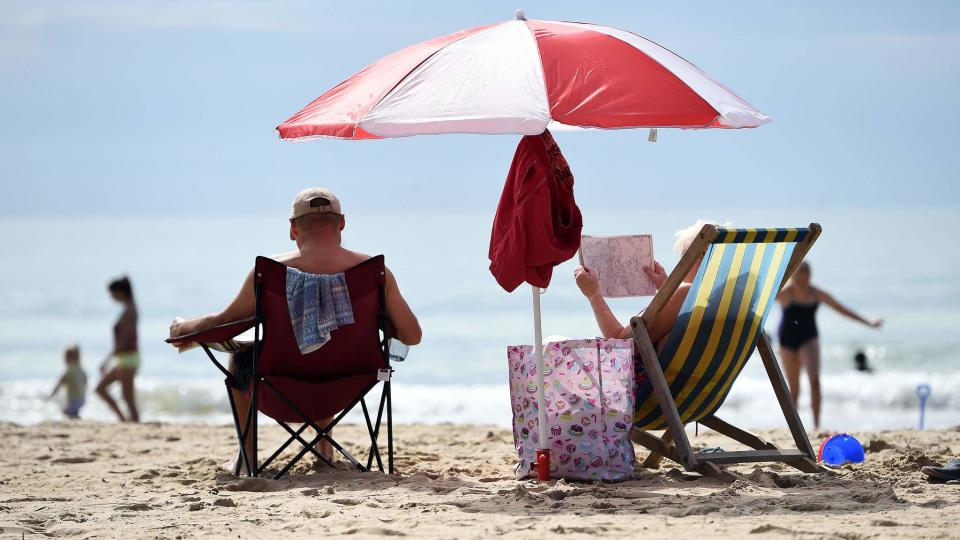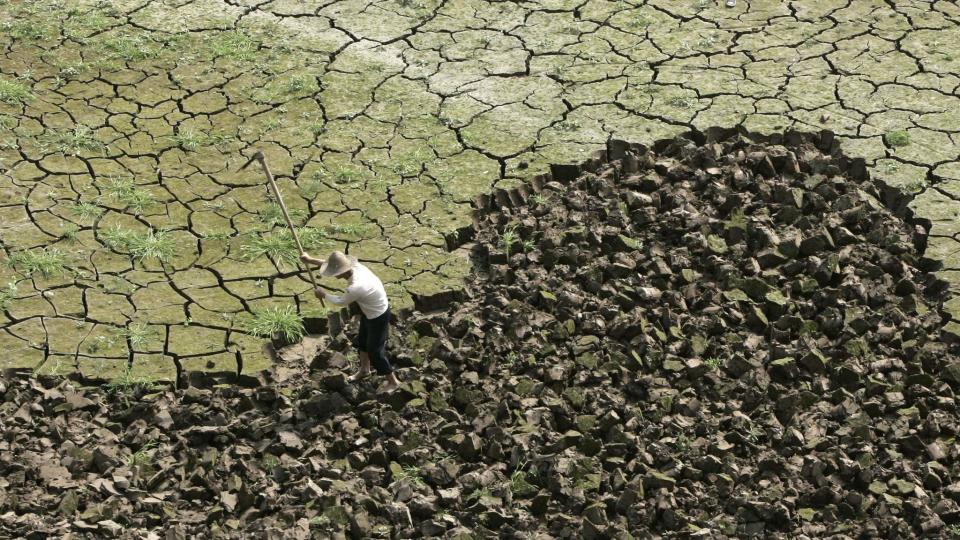El Nino To Drive Temperatures To Record Highs
Global temperatures will reach record highs in the next few years as the impact of greenhouse gases combines with El Nino, a natural warming of the Pacific Ocean, according to scientists.
The likely rise in temperature follows a "pause" in global warming, which sceptics have pointed to as evidence which contradicts ongoing climate change.
But a report from the Met Office, which has been peer-reviewed by the University of Reading's Professor Rowan Sutton, suggests the world is warming again.
However, the warming trend won't be felt evenly across the globe and Northern Europe looks set for several years of cooler summers.
The Met Office's Professor Adam Scaife said the Earth's climate system is at a "turning point", with several global changes occurring at once.
One of the most significant changes is the El Nino, which is expected to be one of the strongest on record.
The report says the phenomenon - a natural cycle of ocean currents - means the eastern Pacific is significantly warmer than average, disrupting regional weather systems.
Asia and Australia are likely to suffer drought, while the west coasts of North and South America can expect torrential rain over the coming months.
The years 2014, 2015 and 2016 are all likely to be at or near record levels as the extra heat from the El Nino effect combines with solar radiation trapped by greenhouse gases.
Earlier this month, forecasters from the UN's World Meteorological Organisation claimed this El Nino is on track to be one of the strongest in more than 60 years – reaching its peak between October and January.
But Prof Scaife said natural weather variations were just the "icing on the cake".
He said: "We believe we are at an important point in the time series of the Earth's climate and we'll look back on this period as an important turning point.
"That's why we're emphasising it because we're seeing so many big changes at once.
"A lot of those things are natural, we've had El Ninos when we were cavemen, that's been going on a long time, and similarly there is evidence for variations in the Atlantic going back 1,000 years through various proxy measures.
"A lot of these things can occur without the influence of human beings.
"However, they are now occurring on top of the influence coming from man's activity, so when they occur, when an El Nino comes and raises the global temperature, that is the icing on the cake, that is the extra bit that creates a record."
The report also says that changes to North Atlantic currents will mean surface temperatures will be cooler than the long-term average.
Prof Sutton told Sky News: "The North Atlantic does look set for a period of some cooling - by half a degree, may be a bit more.
"That may not sound much, but that is enough to affect weather patterns.
"It would tend to favour cooler summers in northern Europe.
"Whether that actually happens depends on competition from other influences like the direct effect of greenhouse gases."
A recent study published in the Science Advances journal also suggests that burning all of the current fossil fuel resources on Earth would result in Antarctica becoming ice-free - causing sea levels to rise by 58m (190ft).
:: Tell us what is important to you in a news app.

 Yahoo News
Yahoo News 

